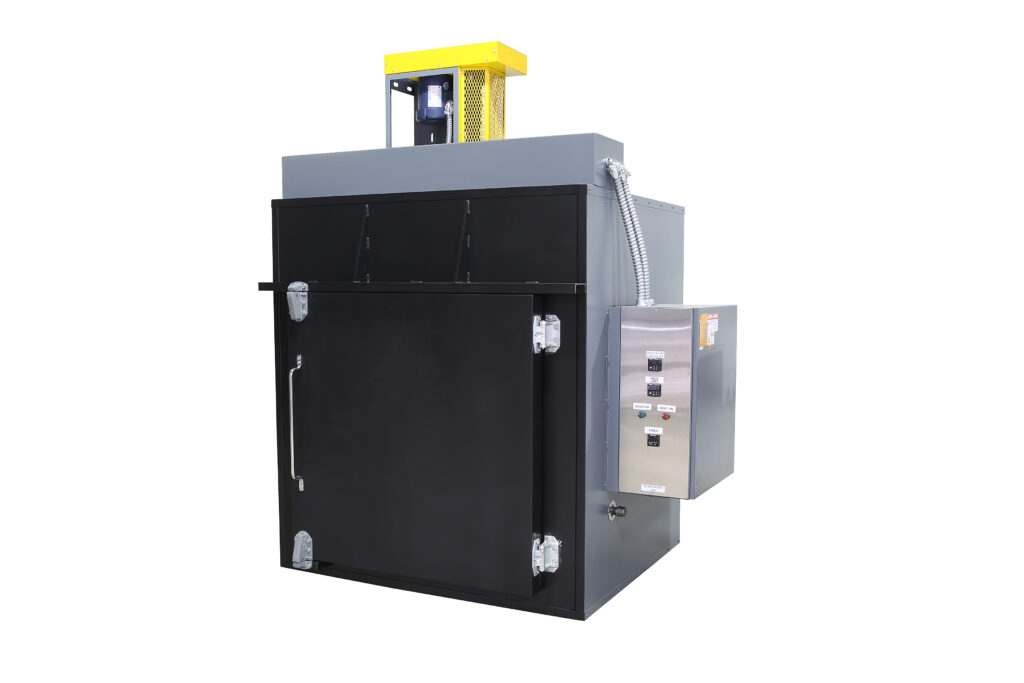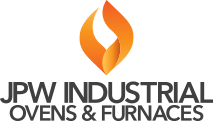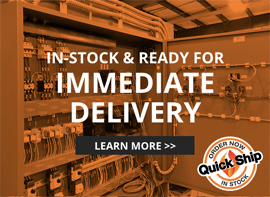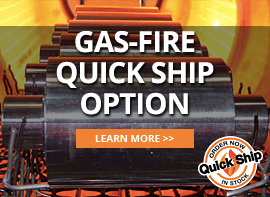
Heat-treating ovens are specialized industrial equipment that alters materials’ physical and sometimes chemical properties. This alteration is achieved through extreme heating and cooling processes. The primary function of these ovens is to harden or soften materials such as metals and glass, making them indispensable in various industrial applications. These processes are crucial for industries that rely on material strength and durability, such as automotive, aerospace, and manufacturing. Each heat-treating oven is designed with precision and tailored to meet the specific requirements of the processed materials, ensuring optimal results and enhancing the performance and lifespan of the final products.
At JPW, we understand the critical role that heat-treating ovens play in your operations. In this blog post, we’ll explain the types of heat-treating ovens we offer, their specialized features, and how they can be leveraged to improve efficiency and quality in your industrial applications. We’ll also share expert insights on choosing the right oven for your needs. Read more to learn about how our heat-treating solutions can elevate your materials to new heights of excellence.
Types of Heat-Treating Oven
Heat-treating ovens come in several types, each tailored to specific applications and industries. Below, we delve into the different types, highlighting their unique features and uses:
- Batch Ovens
Batch ovens are designed to process materials in batches. These versatile ovens can handle various heat-treating processes, including aging, annealing, and stress relieving. Batch ovens are ideal for situations where the precise control of temperature and timing is crucial. - Continuous Ovens
Continuous ovens operate nonstop, making them perfect for high-volume production environments. They are commonly used in applications requiring consistent heating, such as drying, baking, and brazing. Continuous ovens are efficient and can maintain uniform temperatures across the conveyor belt. - Conveyor Ovens
Like continuous ovens, conveyor ovens utilize a conveyor belt to move materials through different heating zones. These ovens are ideal for processes that need to be performed continuously, such as pre-heating and soldering. - Bell Ovens
Bell or hood ovens are suitable for treating large or heavy components that cannot be moved easily. The hood lifts off to allow easy loading and unloading of materials, making them perfect for applications like hydrogen embrittlement relief and normalizing. - Atmosphere Ovens
Atmosphere ovens are designed to control the environmental conditions inside the chamber, preventing oxidation and contamination. These ovens are often used in specialized processes such as solution treating and hardening.
Industries That Use Heat Treating Ovens
Heat-treating ovens find applications across various industries due to their versatility and effectiveness. Here are some sectors that extensively use these ovens:
- Heavy Construction Machinery
Components in heavy construction machinery, such as cylinder heads and welded joints, require precise heat treatment to ensure durability and reliability. JPW heat-treating ovens are engineered to meet these stringent requirements. - Aerospace
The aerospace industry demands materials with exceptional strength and resistance to extreme conditions. Heat-treating is essential for components like pumps and mechanical plates, ensuring they meet the high standards for aerospace applications. - Mining
Mining equipment is subjected to harsh environments and stresses. Heat-treating ovens are critical in enhancing the wear resistance and longevity of metal components used in this industry. - Metalworking
Metalworking relies heavily on heat-treating processes from forging to casting to achieve desired material properties. JPW’s heat-treating ovens are designed to support various applications, including aging, annealing, and tempering.
Typical Heat-Treating Applications
The versatility of heat-treating ovens allows them to be utilized in various applications, including:
- Aging: Enhancing the properties of alloys.
- Annealing: Softening materials to improve machinability.
- Brazing: Joining metals using a filler metal.
- Drying: Removing moisture from materials.
- Pre-heating: Preparing materials for subsequent processes.
- Hardening: Increasing the hardness of materials.
- Normalizing: Refining the grain structure of metals.
- Soldering: Joining metals using a lower-melting-point metal.
- Solution Treating: Homogenizing alloys.
- Stress Relieving: Reducing residual stresses in materials.
- Tempering: Achieving the desired hardness and toughness.
Why Choose JPW for Your Heat-Treating Oven Needs?
At JPW, we pride ourselves on delivering more than just exceptional, American-made heat-treating ovens. When you choose JPW, you invest in quality, reliability, and unparalleled customer satisfaction. Our commitment to excellence is evident in every product we manufacture.
With JPW’s extensive range of heat-treating ovens, you can trust that you are getting a product that combines technical expertise with a personal touch. Our ovens are designed to meet the highest standards of quality and reliability, making them the ideal choice for industry professionals.
Ready to improve your heat-treating processes? Contact us today to learn more about our products and how we can support your specific needs.


